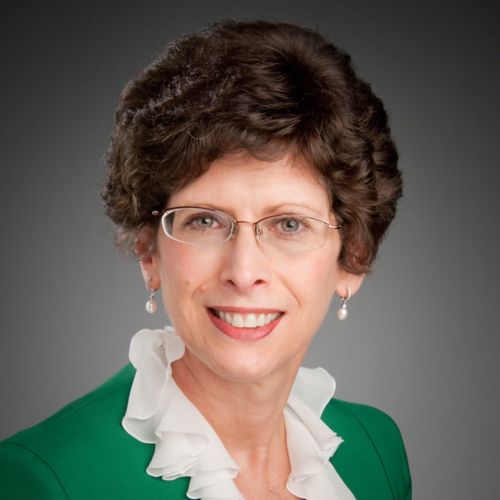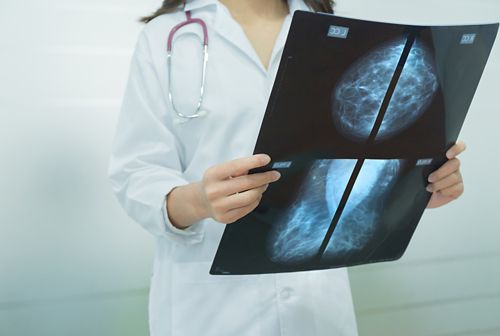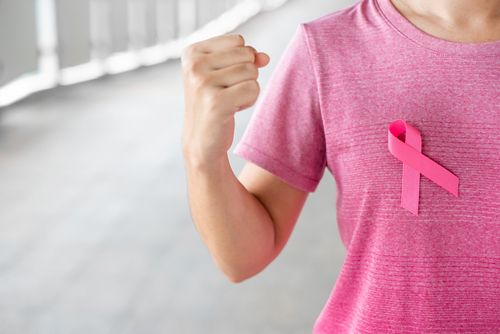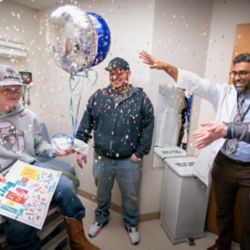Childhood cancer survivors: Know your risks and take action to prevent breast cancer

Together talked with Melissa Hudson, MD, Director of the Cancer Survivorship Division at St. Jude Children’s Research Hospital, about what childhood cancer survivors can do to prevent breast cancer.
Editor’s Note: October is Breast Cancer Awareness Month. Some childhood and adolescent cancer survivors are more at risk for breast cancer than other women. Together talked with Melissa Hudson, MD, Director of the Cancer Survivorship Division at St. Jude Children’s Research Hospital, about what childhood cancer survivors can do to prevent breast cancer.
—
A woman in the U.S. has a 1 in 8 chance of developing breast cancer during her lifetime.
Some childhood cancer survivors have an increased risk of developing breast cancer at an earlier age than other women.
Which childhood cancer survivors have a higher risk of developing breast cancer?
You are at higher risk if you:
- Received chest radiation as a treatment for cancer
- Have a breast cancer gene mutation such BRCA1 or BRCA2
- Have an inherited cancer predisposition syndrome such as Li-Fraumeni syndrome
- Have a family history of breast cancer
Studies show that survivors who received chest radiation may develop breast cancer as early as in their 30s. In general, women usually develop breast cancer in their 50s or older.
What are screening guidelines for childhood cancer survivors who have had chest radiation?

Studies have shown that having both a mammogram and MRI at each screening visit is the most effective strategy for identifying breast cancers in earlier stages in younger women.
Screening guidelines recommend that women at higher risk start yearly breast cancer screenings much earlier than other women.
Screenings should:
- Begin at age 25 or 8 years after chest radiation — whichever comes last
- Include a mammogram and breast magnetic resonance imaging (MRI)
- Continue until at least until age 60
Studies have shown that having both a mammogram and MRI at each screening visit is the most effective strategy for identifying breast cancers in earlier stages in younger women (before menopause).
These guidelines are recommended by:
What factors may affect my risk of breast cancer?

It’s important to cultivate healthy habits such a regular physical activity and good nutrition.
For all women, age is a factor. As you get older, your risk of developing breast cancer increases.
Drinking alcohol is linked to an increased risk of breast cancer, according to the American Cancer Society. The risk increases with the amount of alcohol you consume. Women who have 1 alcoholic drink a day have a small (about 7% to 10%) increase in risk compared with non-drinkers. Women who have 2 to 3 drinks a day have about a 20% higher risk than non-drinkers. Alcohol is also associated with an increased risk of other types of cancer.
Being overweight or obese raises your risk of breast cancer, according to the American Cancer Society. It’s important to cultivate healthy habits such a regular physical activity and good nutrition.
For more information, read Am I at Risk for Breast Cancer?
Will insurance pay for earlier screenings?
Yes, most insurance plans should cover earlier screenings for breast cancer if you are at higher risk. Your health care provider or your pediatric cancer care team can provide documentation if needed.
What is the best way to share information with my health care provider?
Since childhood cancer is so rare, your health care provider may not be aware of your increased risk. You may find yourself in the role of educating your health care provider.
The best thing to do is to share your survivorship care plan. The plan includes information about:
- Past treatment
- Possible late effects
- Screening recommendations
If you don’t have your care plan, contact the center where you received cancer treatment.
You can also ask for a letter from your pediatric cancer care team that highlights your risks and needed screenings. Sometimes this information can be shared in an email or phone call.





